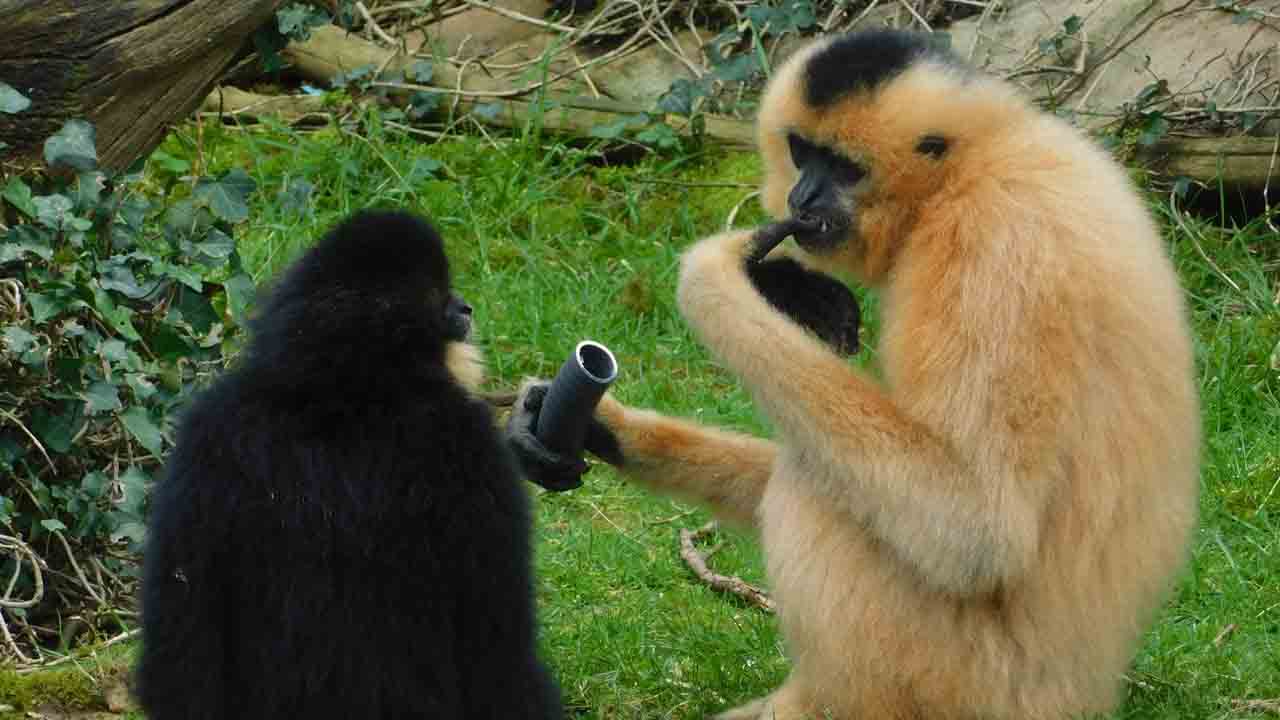Study of handedness in primates: Left or right?
About 90 percent of all humans are right-handed. Why that is the case is still a mystery. According to current evidence, other primate species do not show comparable preferences. Zoologists at the University of Duisburg-Essen (UDE) and the Humboldt University Berlin have now attempted to close this knowledge gap in a new study. For this purpose, they tested the handedness of various monkey and ape species in 39 zoos and sanctuaries. The results were published in the journal eLife.

Southern yellow-cheeked crested gibbons (Nomascus gabriellae) in the French Bioparc de Doué-la-Fontaine during the tube task test. Photo: Kai R. Caspar
Bernstein members involved: Fabian Pallasdies
“Like language, right-handedness is considered a unique feature of our species,” says UDE researcher Kai. R. Caspar, lead author of the study. Several popular ideas about its origins circulate in the research community: “It could have evolved over time as a byproduct of brain enlargement, or could be related to habitual tool use. Life on the ground could have also played a role, because not only we humans but also other ground-dwelling great apes, such as gorillas, tend to be right-handed.”
To retrace and explain the evolutionary history of human handedness patterns, comparative data from other primate species is essential. That’s why the research team conducted a standardized manipulation test in 39 zoos and sanctuaries in Europe, Brazil and Indonesia. In this so-called tube task, the primates must use both hands to extract food in a tube. The zoologists combined their observations with those of other studies later on.
Using data from 1,800 primates from 38 species – including humans – they were able to show “that the strong right-handedness of humans is indeed unique. Although other primates, such as spider monkeys, sometimes have similarly strong individual hand preferences, left- and right-handed monkeys are almost equal in numbers.”
What surprised Caspar and his colleagues: The data contradict conventional hypotheses about the evolution of human handedness. “Neither the use of tools nor the brain size of a species seem to influence whether the right or left hand is preferred,” he said. “The importance of lifestyle on handedness also appears to have been overestimated in the past,” he said. “However, we were able to show that ground-dwelling species generally have weaker hand preferences than arboreal species. Interestingly, however, humans obviously do not fit into this pattern,” the UDE scientist points out.
The question of why humans are predominantly right-handed remains unanswered, he adds. Thanks to their study, research has nevertheless progressed one step further, Caspar thinks: “Primatology and neuroscience can now reject some traditional hypotheses and look for new explanatory approaches.”
Translated from German by Alexander Lammers/Bernstein Network Computational Neuroscience




